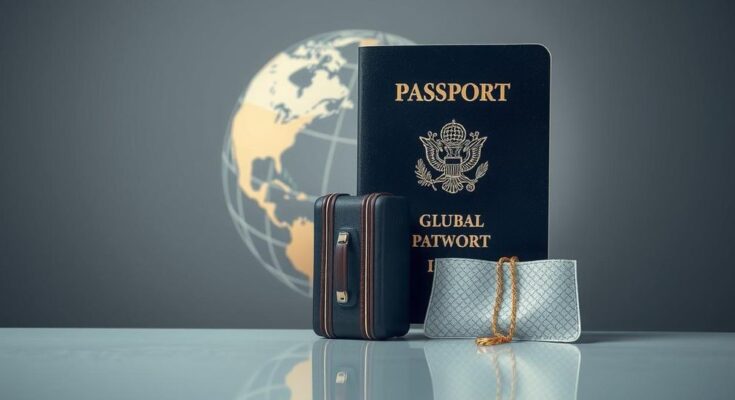Civil rights groups are alarmed by President Trump’s executive order, which may lead to a renewed travel ban affecting Muslim-majority countries. They highlight the risks of discrimination and harmful stereotypes. A 24-hour hotline has been established to assist those affected, while advocacy organizations await clarity from the White House regarding the order’s implications.
Civil rights organizations in the United States are raising concerns regarding President Donald Trump’s recent executive order, which may signal the reinstatement of a travel ban affecting countries such as Iran, Iraq, Syria, Libya, Sudan, Somalia, and Yemen. Advocacy groups argue that such measures could exacerbate discrimination against Muslim and Arab-majority nations, reinforcing negative stereotypes and undermining constitutional protections. Amid growing tensions, the focus has returned to the potential consequences of these developments on affected communities.
In light of these mounting fears, advocacy organizations have initiated a 24-hour hotline to aid individuals potentially impacted by the executive order. This service aims to provide essential support for travelers who may encounter issues stemming from the directive, offering a crucial resource during this uncertain time. The hotline reflects the serious approach these groups are taking in response to the evolving situation.
Despite numerous inquiries from media outlets and civil rights activists, the White House has not disclosed specific details regarding the executive order. This lack of transparency has left advocacy organizations and the public in a state of uncertainty, heightening concerns about its implications on discrimination and civil liberties. The ambiguity surrounding the order has intensified calls for clarity and accountability from the administration.
The American-Arab Anti-Discrimination Committee (ADC) is actively engaged in monitoring the executive order and contemplating legal challenges. Abed Ayoub, the ADC’s national executive director, indicated that decisions regarding potential court actions will be forthcoming. Past patterns during Trump’s presidency show a precedent for legal challenges against similar travel policies, underscoring the complexity of the situation.
Civil rights advocates are calling upon the administration to evaluate the broader ramifications of its policies. They emphasize the importance of ensuring that no group is unjustly affected and advocate for the principles of equality and non-discrimination. As circumstances develop, the potential revival of a travel ban has reignited discussions about balancing national security with the protection of individual rights.
The article discusses the implications of President Donald Trump’s executive order concerning potential travel bans on several Muslim-majority countries. It highlights the role of civil rights organizations in opposing discriminatory practices and the socio-political context surrounding such policies. Given the history of travel bans during Trump’s administration, the article underscores the ongoing debate over national security and civil liberties.
In conclusion, the potential reinstatement of travel bans targeting specific nations has ignited significant concern among civil rights groups. Advocacy organizations are mobilizing resources to support affected individuals while calling for transparency from the administration. As the situation continues to unfold, the delicate balance between security measures and civil rights remains a critical issue for both communities and legal experts.
Original Source: www.travelandtourworld.com



